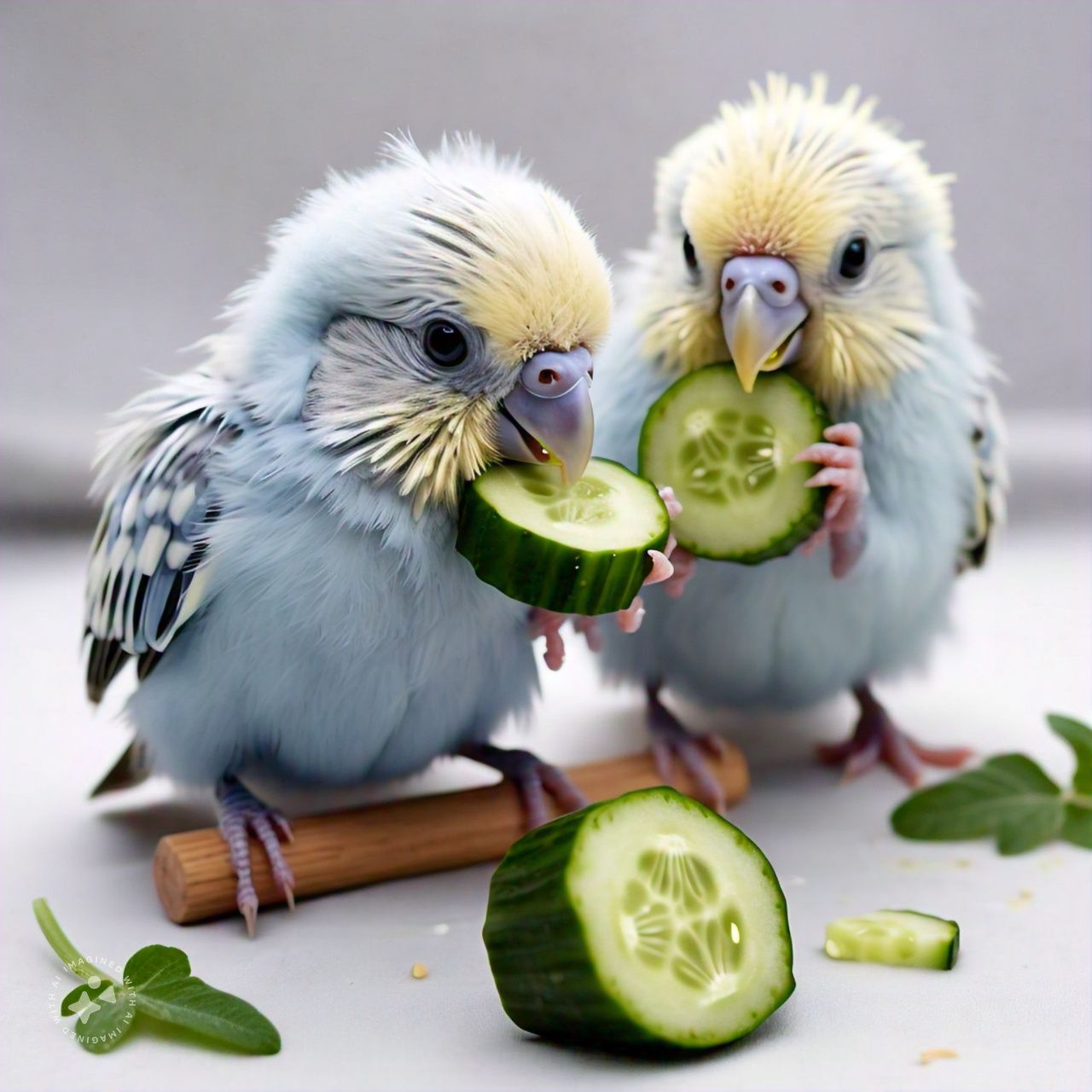What Do Budgies Eat? A Complete Guide to Budgie Nutrition
Budgies, also known as parakeets, are among the most popular pet birds worldwide due to their friendly nature and colorful plumage. Ensuring your budgie gets the right nutrition is essential for their health, energy, and longevity. In this guide, we’ll explore the best foods for budgies, discuss what to avoid, and answer common questions about their dietary needs.
Understanding Budgie Dietary Basics
Budgies in the wild primarily feed on seeds, fruits, and the occasional insect. In captivity, they need a well-rounded diet that includes a variety of food types to mimic their natural diet. A mix of seeds, vegetables, fruits, and specialized pellets provides them with essential vitamins and nutrients, keeping them active and healthy.
Seeds: A Staple in Budgie Diets
Seeds are a major component of a budgie’s diet. A blend of seeds specifically formulated for budgies is widely available and provides essential proteins and fats. However, it’s important to avoid a diet solely based on seeds, as they are high in fat and lack certain nutrients. Instead, seeds should be combined with other food sources to ensure a balanced diet.
Pellets: A Balanced Choice for Budgies
Commercial pellets are designed to provide a balanced nutritional profile and can be an excellent addition to a budgie’s diet. Pellets contain a mixture of seeds, grains, and essential nutrients that may not be found in seeds alone. Introducing pellets to your budgie’s diet can help ensure they receive all the vitamins and minerals needed for a healthy life.
Fresh Fruits for Budgies
Fruits offer a refreshing, vitamin-rich treat for budgies. They love various fruits like apples, oranges, and berries, which are packed with vitamins A and C. However, fruits should be given in moderation due to their natural sugars. Some less common fruits, like papaya, are also safe and nutritious for budgies. Discover more about feeding papaya to your budgie in this guide on budgies and papaya.
Vegetables Budgies Love
Vegetables are a vital component of a budgie’s diet, offering essential vitamins, minerals, and fiber. Some favorites include carrots, spinach, and broccoli. Budgies can also enjoy zucchini, which is both hydrating and nutritious. Zucchini provides a good source of vitamins A and C and is gentle on their digestive system. For more on offering this veggie, see this guide on budgies and zucchini.
Leafy Greens and Herbs
Leafy greens like kale, spinach, and parsley are excellent for budgies, providing them with fiber, vitamins, and minerals. You can offer these greens a few times a week, ensuring they are thoroughly washed and pesticide-free. Herbs such as basil and cilantro also add variety and can stimulate your budgie’s taste buds.
Protein Sources for Budgies
While seeds and vegetables provide a good nutritional base, budgies occasionally benefit from additional protein. Small insects or worms can be given sparingly to provide a protein boost. Budgies in the wild may eat worms as a source of protein, especially during breeding seasons. If you’re interested in this option, read more about budgies and worms.
Avoiding Toxic Foods
It’s crucial to be aware of foods that are toxic to budgies. Avoid giving them chocolate, avocado, caffeine, and alcohol, as these can be fatal. Additionally, certain fruits like apple seeds contain small amounts of cyanide and should be removed before feeding. Always research or consult a veterinarian before introducing new foods to your budgie.
The Importance of Calcium
Calcium is essential for budgies, especially for females, as it helps with egg production and bone health. Providing a cuttlebone or mineral block can help ensure they receive adequate calcium. Cuttlebone also aids in beak maintenance, allowing budgies to keep their beaks trim and healthy.
Treats and Snacks: Moderation is Key
While it’s fun to give your budgie treats, moderation is essential. Treats like millet spray and honey sticks are popular among budgies, but they are calorie-dense and should be limited to avoid weight gain. Use treats as a reward or an occasional snack rather than a primary food source.
Hydration Needs for Budgies
Fresh, clean water is essential for your budgie’s health. Ensure that their water bowl is washed daily and refilled with clean water. Some budgies enjoy bathing in water dishes, which can help them stay clean and hydrated. Bathing options can include shallow dishes or misting, both of which help maintain feather health.
Can Budgies Eat Insects?
While not a dietary staple, budgies can eat small insects occasionally. Insects like mealworms provide protein and are safe for budgies if given in small amounts. If you’re considering insects as a supplement, make sure they are fresh and appropriately sized for budgies.
Budgie Feeding Schedule
Budgies do well with a regular feeding schedule. Offering food in the morning and evening allows them to establish a routine. Make sure they have access to a variety of foods each day, including seeds, pellets, and fresh produce, to encourage balanced nutrition.
Feeding Young Budgies
Young or juvenile budgies require a slightly different diet, often higher in protein to support their rapid growth. Seed blends formulated for young birds, along with vegetables and small amounts of protein, can help them grow strong and healthy.
Common Budgie Feeding Mistakes
Avoiding common feeding mistakes can prevent health issues. Overfeeding seeds, failing to introduce variety, and giving too many sugary fruits are common errors that can lead to nutrient deficiencies or obesity. Offering a mix of seeds, vegetables, and occasional fruits keeps their diet balanced and enjoyable.
Final Thoughts on Feeding Budgies
Ensuring your budgie has a well-rounded diet of seeds, pellets, vegetables, and occasional fruits is key to their health and happiness. Avoid foods that can be harmful, and remember to provide fresh water daily. With proper nutrition, your budgie will thrive, remaining active, colorful, and full of life. For more resources on budgie care and feeding tips, visit Bird Queries, your source for bird knowledge and advice.
